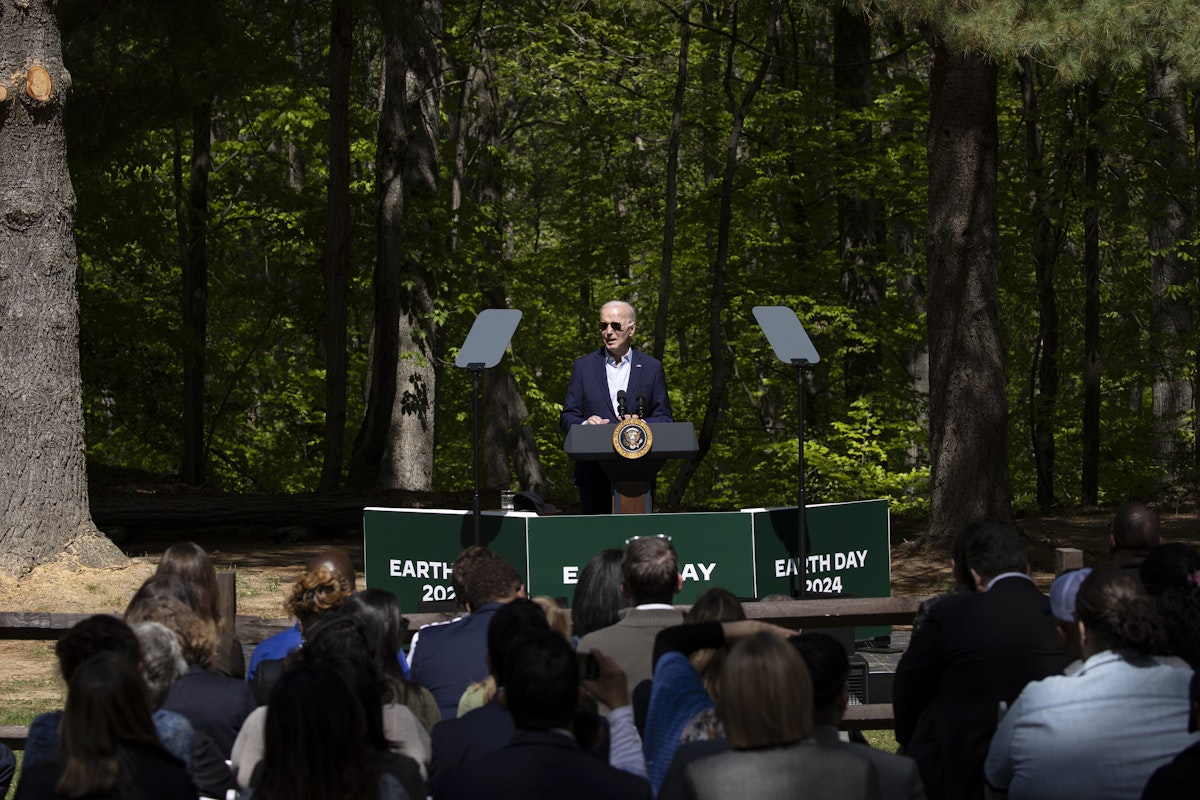On Earth Day, President Joe Biden showcased various initiatives aimed at fulfilling his administration’s climate goals. These included allocating $7 billion from the Inflation Reduction Act for grants to make residential solar power more accessible to lower-income communities, safeguarding federal lands from oil and gas drilling, and launching the American Climate Corps (ACC), a program first introduced last fall.
The event took place in Virginia’s Prince William Forest Park, with notable attendees such as Representative Alexandria Ocasio-Cortez and Senator Ed Markey, proponents of their chambers’ respective Green New Deal resolutions.
However, Biden’s Earth Day address coincided with a critical juncture for his administration. Recent polls revealed a decline in his lead over Trump among young people compared to 2020. Furthermore, his efforts to engage young voters, who played a significant role in his election, have faced challenges, particularly in light of ongoing protests against conflicts supported by his administration.
Biden (Credits: Rolling Stone)
Instances like the Columbia University protests against Israel’s actions in Gaza, where some participants were arrested by the NYPD, have garnered attention alongside Biden’s climate initiatives.
Despite the significance of Biden’s climate initiatives, they received less attention on Earth Day than his response to questions about protests perceived as antisemitic. Biden’s condemnation of antisemitic protests, which some interpreted as referencing the Columbia protests involving Jewish participants, became a focal point of discussion.
Climate advocacy has been central to Biden’s appeal to young voters, and his administration has emphasized the importance of involving youth in addressing climate challenges, exemplified by the creation of the American Climate Corps with job opportunities this summer.
Biden Needs to Support a Gaza Peace Deal to Win Young Climate Voters (Credits: Arab Center Washington DC)
Nevertheless, concerns linger about whether Biden’s climate accomplishments can offset discontent among young voters regarding his administration’s support for conflicts like the one in Gaza. Despite endorsements from youth and climate advocacy groups, there’s apprehension about the potential loss of support among climate-conscious young voters due to other policy stances.
Surveys indicate that a significant portion of Americans, particularly those under 30, prioritize a permanent ceasefire in Gaza and express sympathy towards Palestinians affected by conflicts fueled by U.S. involvement.
The intersection of climate advocacy and discontent over foreign policy presents a complex challenge for the Biden administration. While young people have contributed significantly to Biden’s climate agenda, many are disillusioned with his stance on conflicts like Gaza.
Winning back support from these demographics requires navigating this nuanced landscape. Ultimately, addressing concerns about foreign policy may prove crucial in retaining the support of climate-conscious youth, underscoring the intricate dynamics shaping contemporary political discourse.
